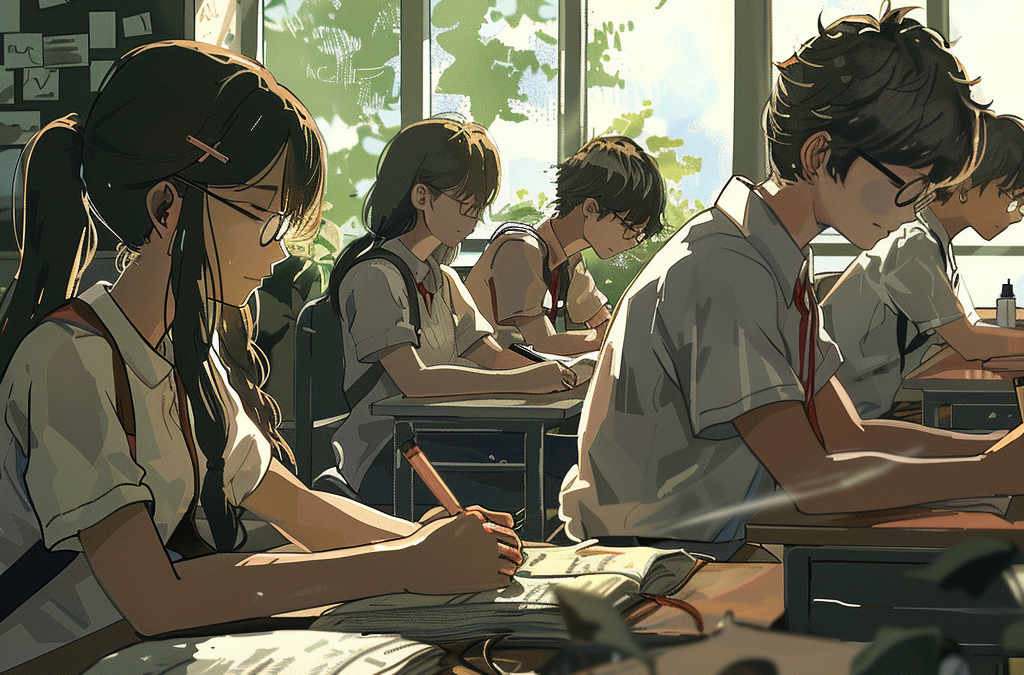
Beneath the surface of every captivating story and every vivid description lies an unseen current, pulling the reader along: this is coherence.
Coherence is the quiet logic, the subtle link that weaves individual strands of thought, action, and speech into a seamless narrative fabric; it is the assured constancy that allows a narrative, no matter how fantastical its elements, to unfold with a sense of direction and purpose, inviting the reader to willingly suspend disbelief and embark on the journey the writer has charted.
Now, imagine a world where the sky rains upward, where characters age in reverse with each passing day, and where cities float aimlessly like ships lost at sea. While such elements could craft a marvelously surreal tapestry, without the thread of coherence to stitch them into the fabric of a story, the tapestry unravels, leaving behind nothing but a tangle of confusion. This exemplifies how essential coherence is in writing, and how its absence can disrupt the reader’s engagement.
As we voyage through the realms of personal narratives, where coherence carves a clear path through the forests of personal experience; descriptive essays, where it paints a consistent scene; short stories, with their need for concise and cohesive arcs; and analytical essays, where arguments are laced together into a compelling narrative, we will explore how coherence remains the indispensable compass for writers navigating the sea of storytelling.
This essay will unfurl the significance of coherence as the gravitational force that holds the planets of plot, setting, and character in orbit, preventing the narrative universe from descending into chaos in a context that is relevant to you as an IGCSE student, highlighting its relevance to descriptive and narrative writing before diving into the different text types you may create in the IGCSE.
Ready? Let’s go!
Descriptive and Narrative pieces
In both descriptive and narrative pieces, coherence is key, but its application and impact vary based on the type of writing.
Descriptive Writing
Descriptive writing focuses on painting a picture in the reader’s mind using vivid language and sensory details. Coherence in descriptive writing involves creating a consistent and clear image. This means that all the details provided should contribute to a unified impression. For example, if describing a serene lake, details about sounds, colors, and atmosphere should all reinforce the sense of tranquility.
When responding to essay prompts in descriptive writing, the principle of coherence dictates that all descriptive elements should be harmoniously aligned to convey a singular, cohesive impression. Even when introducing surprising or unusual details, they should fit into the overall image being created.
Narrative Writing
Narrative writing, on the other hand, is about storytelling. Coherence in narrative writing involves ensuring that the plot, characters, setting, and dialogue all work together seamlessly to advance the story. In response to essay prompts, a narrative writer should focus on constructing a coherent plot with a clear sequence of events and character motivations that are understandable and logical within the story’s context.
Types of Pieces and Influence of Coherence
- Personal Narratives: In personal narratives, coherence helps in structuring the story around a central theme or experience, ensuring that all elements contribute to the overarching message or insight.
- Descriptive Essays: For descriptive essays, coherence ensures that all descriptions contribute to the overall sensory experience or atmosphere the writer intends to create.
- Short Stories: In short stories, maintaining coherence is crucial for keeping the reader engaged and ensuring the plot unfolds logically, even if it includes twists or non-linear timelines.
- Analytical Essays: In analytical pieces, coherence is key in forming a logical argument where each point builds upon the previous one.
Evaluating the Role of Coherence
In the creation of a final piece, whether descriptive or narrative, writers should continuously ask if each element (be it a character detail, a sensory description, or a plot twist) contributes to the overall coherence of the piece. While creative liberties can be taken, especially in genres that bend the traditional rules of storytelling, such deviations should always serve a purpose and not detract from the reader’s understanding or enjoyment of the piece.
However, it’s important to note that in some narrative styles, especially in post-modern and experimental literature, coherence might be deliberately disrupted to challenge the reader or to convey complex themes like disorientation or the fluidity of reality. In such cases, the lack of traditional coherence is a deliberate stylistic choice.
In conclusion, for most descriptive and narrative writings, especially in response to essay prompts, coherence enhances readability and impact.
However, in specific genres or styles, breaking coherence can be a powerful tool to achieve certain artistic or thematic goals, provided it’s done with clear intent and skill.
At the same time, intent and skill are what underpin every successful endeavor into creative writing, whether used in descriptive or narrative writing, or any other form of writing that you might consider. Beyond all of that lies the appreciation for language that this course is meant to bring forth from within you as you learn to create universes that suit what you envision and what you want to see come to life in ways that transport the reader away from the mundane into the fold that you will construct for them seamless, coherent, and a treat for the imagination.
Best of luck!
V.




